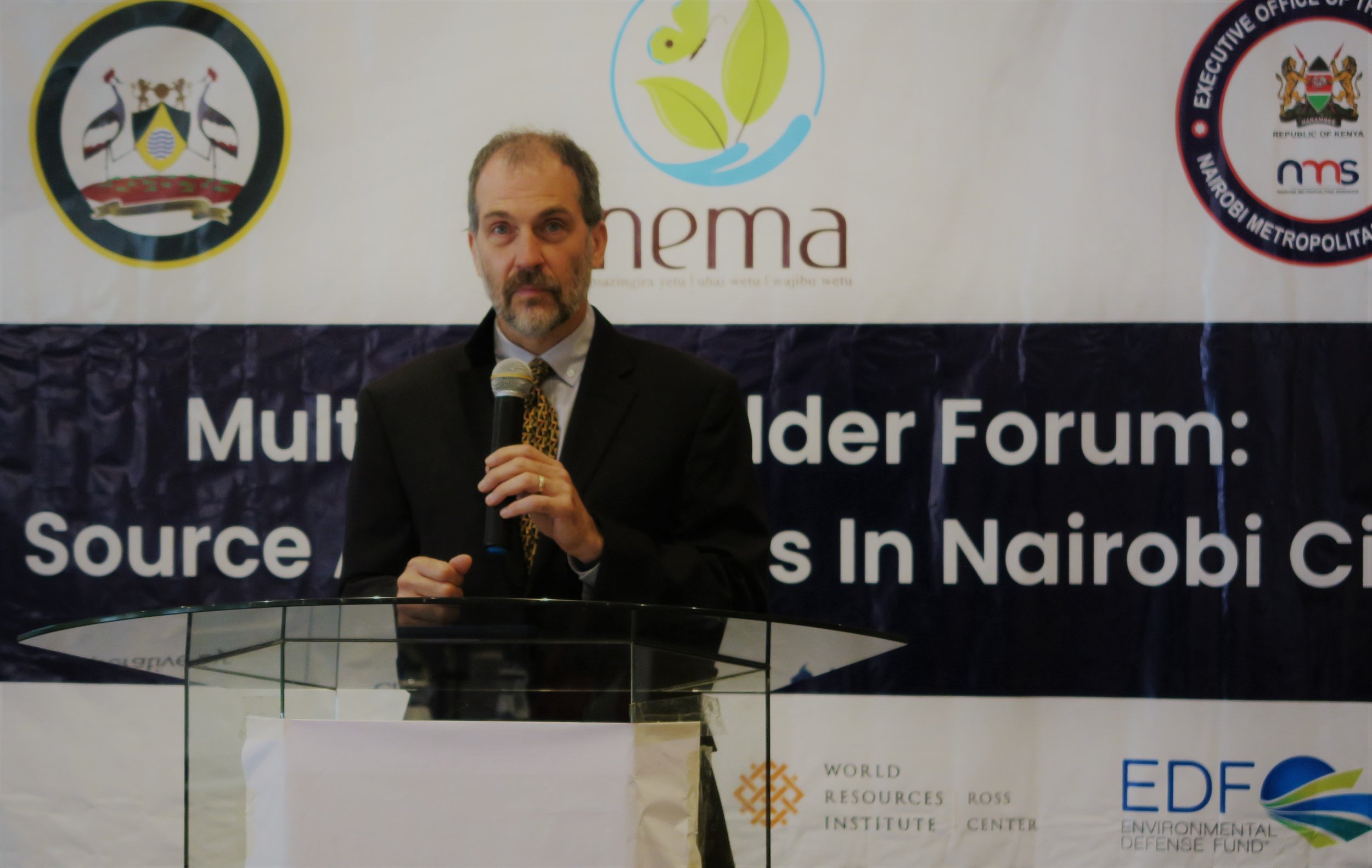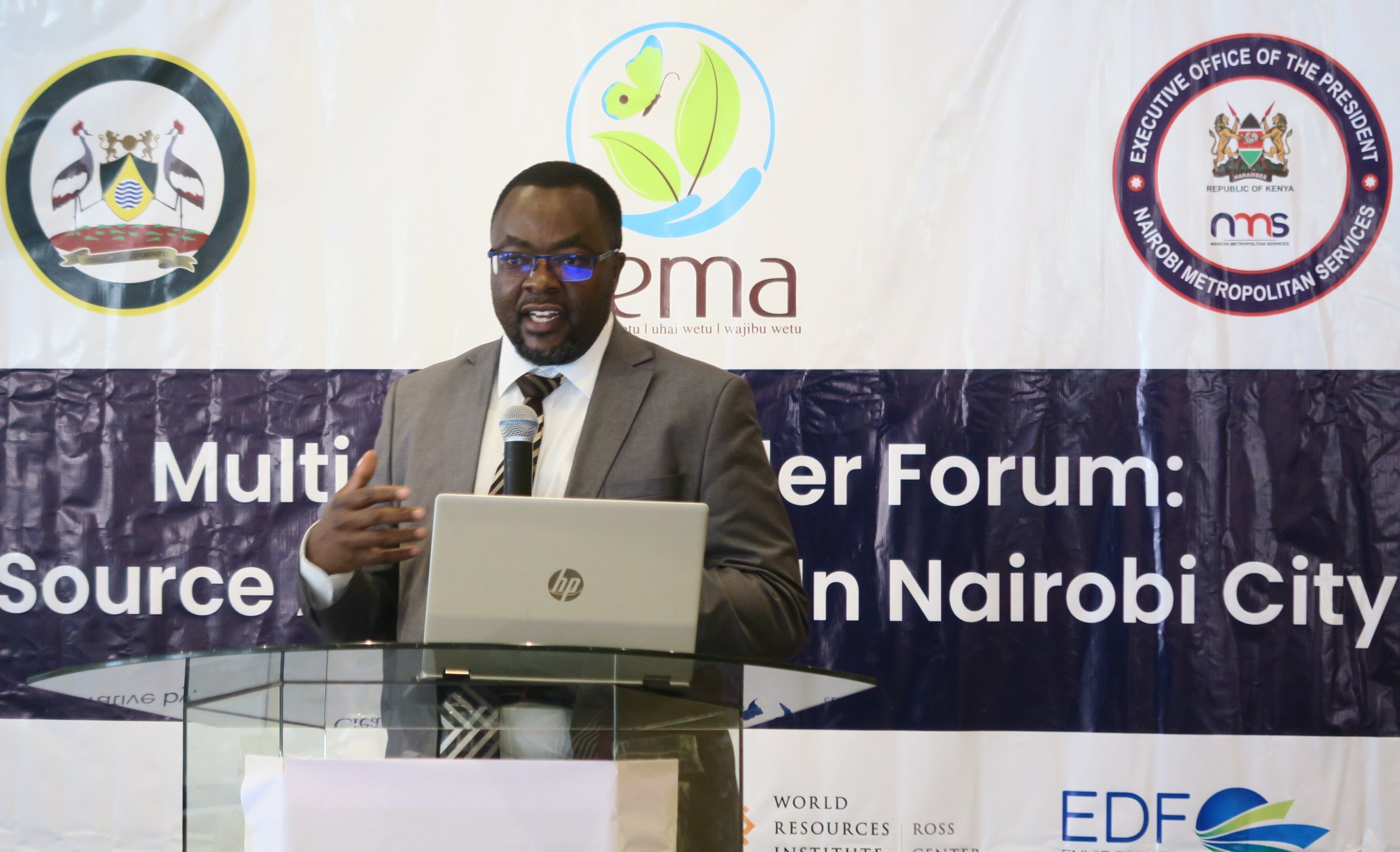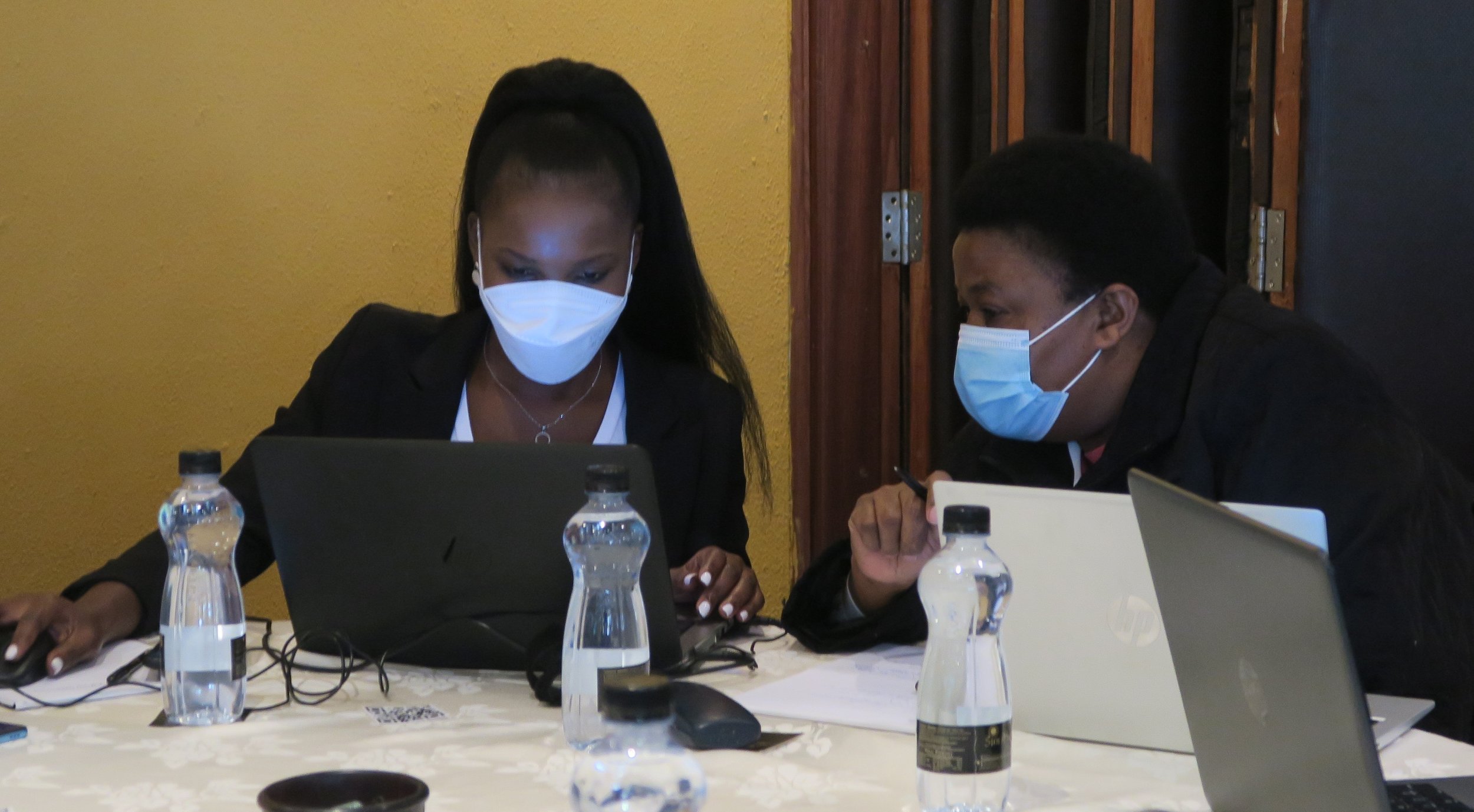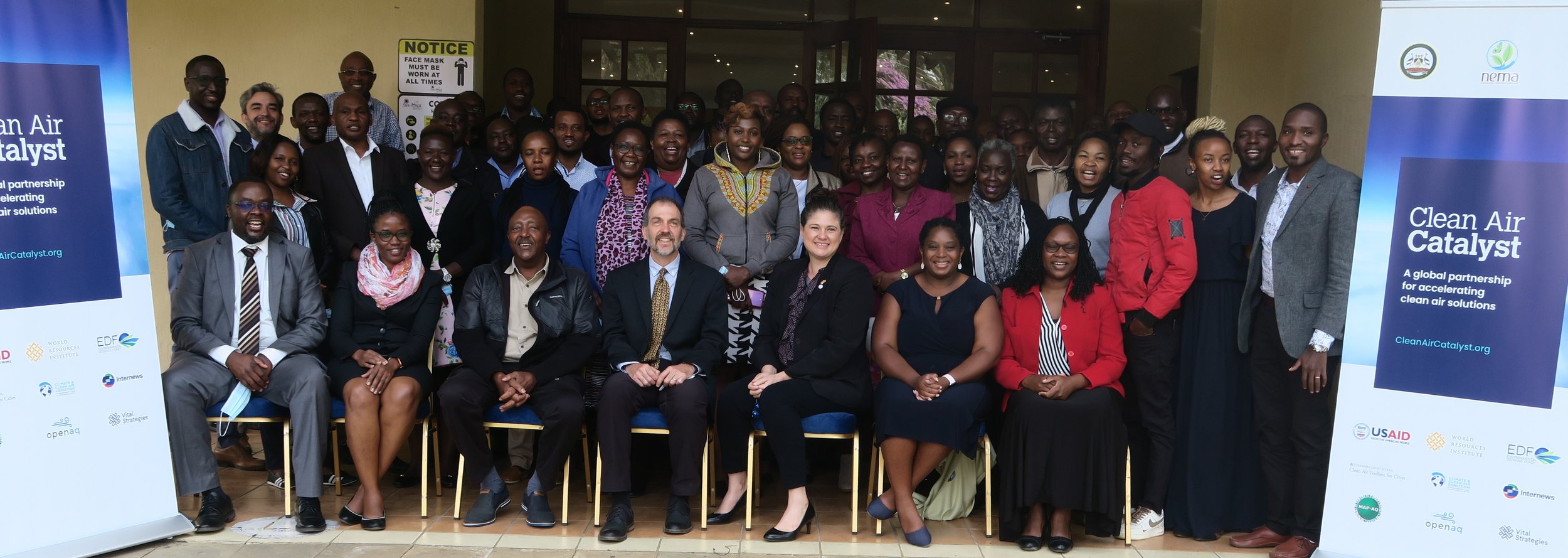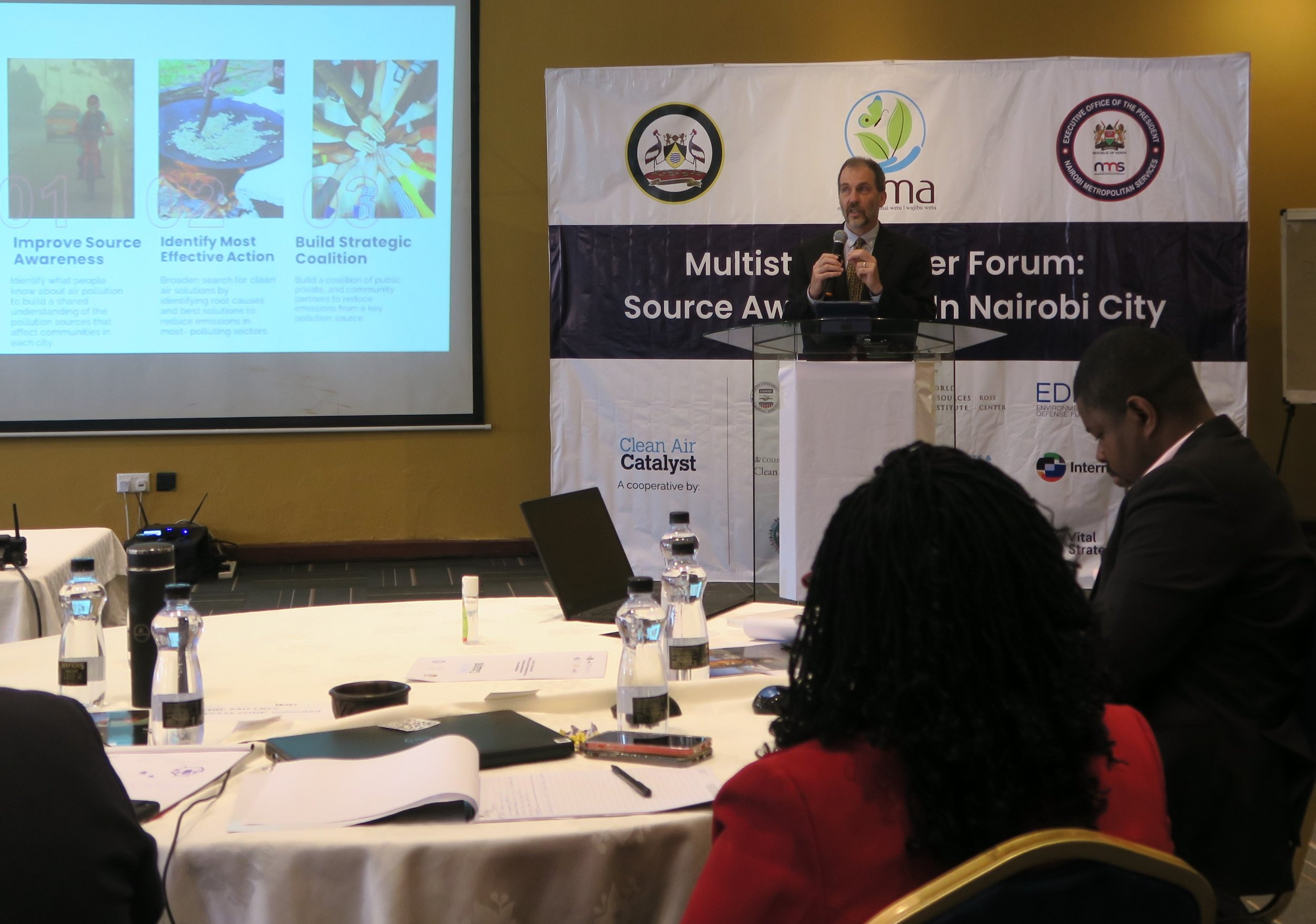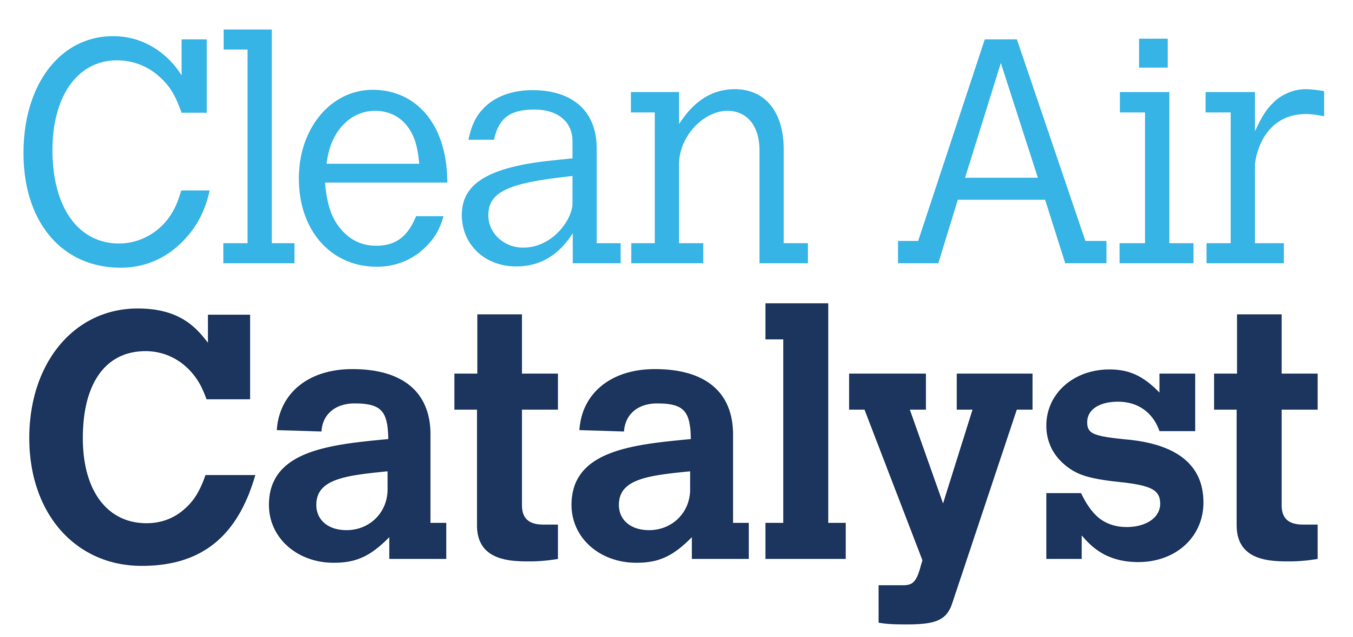Multistakeholder Forum: Source Awareness in Nairobi City - Day 1
On June 19th, the Clean Air Catalyst’s Nairobi team kicked off a stakeholder forum in Naivasha to exchange knowledge and insights on air pollution and establish a shared understanding of key sources, drivers, impacts and current mitigation actions for the city of Nairobi. The week-long workshop will gather information on what’s being done in the air quality space in Nairobi and mobilize support for clean air action.
In his opening remarks, Chief of Party for Clean Air Catalyst Ethan McMahon said the workshop will help give direction on how to work together with stakeholders from government, civil society and communities to improve air quality. McMahon emphasized that Clean Air Catalyst strives to address climate change by identifying and designing feasible, effective and sustainable solutions to solve air quality issues. Improving source awareness and creating a common understanding on root causes of pollution will help lay the foundation for action.
Multiple studies indicate that Nairobi's particulate matter levels exceed WHO guidelines. Poor air quality causes 19,000 premature deaths in Kenya each year, making it the fourth most important risk factor in driving death and disability in Kenya. The cities informal settlements, housing more than 70% of Kenya’s residents, suffer the most from poor air quality.
Selelah Okoth, a representative of Kenya National Environment Management Authority (NEMA) said, although the government has put in place regulations such as the Nairobi City County Air Quality Act, it hasn’t been able to meet the city’s needs due to various challenges such as capacity gaps and financial limitations in generating data and translating it into policy. “This partnership is a strong opportunity for us to address these challenges together,” Okoth noted. She also mentioned that Clean Air Catalyst will help amplify community voices: “It’s time to demystify science and speak about air quality in a language everyone understands. For all this to happen, the government of Kenya needs to work with all of you in this room today,” she concluded.
USAID Mission Environment Officer Wilkister Magangi agreed, saying that to be effective, local leadership needs to fully commit to clean air targets in the country and create strong partnerships that enable the formulation of clear strategies and solutions.
Honorable Larry Wambua, Nairobi City County executive committee member for Environment, Energy, Water and Natural Resources, said he is happy the county government is partnering with Clean Air Catalyst, which will help implement the Nairobi city Air Quality Action Plan that aims to promote improved lifestyle and health, clean energy options and improved mobility, among others.
The first day of the stakeholder forum offered an opportunity to provide an in-depth introduction to Clean Air Catalyst. George Mwaniki, Head of the Air Quality Program for WRI Africa, provided a background on the state of air quality in Kenya as well as what and how Clean Air Catalyst’s work helps address air quality challenges. Ethan McMahon discussed the Clean Air Catalyst Theory of Change followed by a Q&A session from participants.
Participants also had the opportunity to discuss in groups around the challenges of waste management, industries, energy, and other sources of pollution and their impacts on health.
Major issues that emerged from discussions on the first day are:
The importance of strengthening air quality monitoring
Building capacity in the air quality sector
Better mapping of air pollution sources
More research and data generation
Integrating gender in air quality strategies and solutions.
